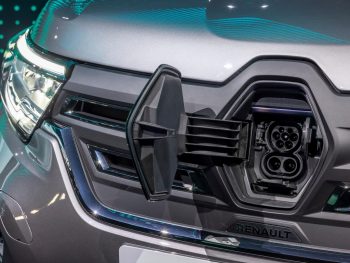More action needed to convert eLCV sceptics, warns FleetCheck
The van fleet sector is becoming increasingly divided over eLCV adoption, with “sceptics” set to be a potential issue in the move towards electrification.

A process of education, alongside a range of operational and fiscal incentives and disincentives, may be necessary to convince objectors to switch, according to FleetCheck
FleetCheck has warned that the sector appears to be splitting into thirds – incorporating enthusiastic adopters, those who see electrification as inevitable, and others determined to resist electric vans as long as possible. And it’s the latter who need to be made aware of the reasons for going electric and the associated problems with not doing so.
Peter Golding, managing director at the fleet management software firm, explained: “We all know about the major fleets that are buying hundreds of eLCVs and blazing a trail, and there are those who are not enthusiastic but view the arrival of electric vans as something they just have to do.
“However, it is not difficult to find others who are determined to drag their heels and this has potential implications for fleet van operations. Especially among SMEs, it is not unusual to find vehicles that are 6-8 years old still in daily use. Even though diesel production ends in 2030, they could still conceivably be in use a decade later, which is highly undesirable.
“Now, the views of these sceptics are likely to be gradually changed over time when they see other people successfully using eLCVs – but they are still likely to prove a potential drag on the overall move towards electrification.”
He explained that a process of education alongside a range of operational and fiscal incentives and disincentives may be necessary to convince objectors to switch.
This includes work to show how eLCV cost and range – both big concerns among electric van sceptics – are being tackled over time. The installation of kerbside charging and the way in which the prices of electric vehicles are likely to come down are important points, as is the potential for PHEVs as a stepping stone to 2030.
But Golding said that Clean Air Zones and potential market incentives such as ongoing vehicle subsidies and taxation measures all have a part to play in changing minds.
“We also shouldn’t shy away from simply promoting the environmental benefits of van electrification,” continued Golding. “It is very possible that within a few years, businesses seen to be using diesel vehicles will be viewed as out of touch by consumers, and there is every possibility that will equally apply to major corporations and small local companies.”

